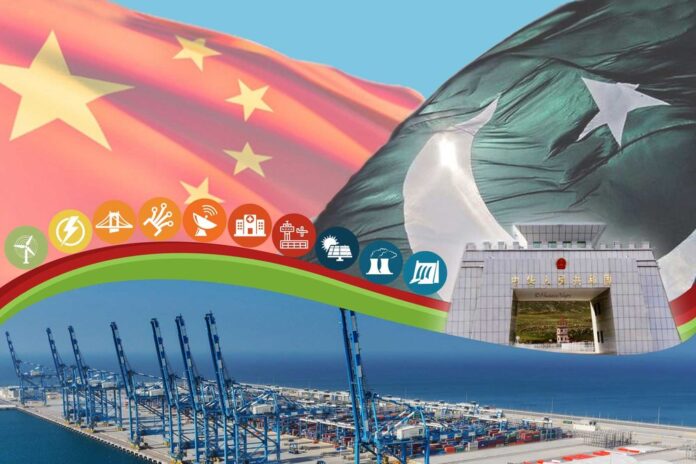Wang Shengjie, China’s political secretary to Pakistan, has expressed serious concerns over the future of the $62 billion China-Pakistan Economic Corridor (CPEC), citing security challenges and what he described as Pakistan’s “false rhetoric” surrounding the project. In an interview with The Guardian, Shengjie warned that the lack of adequate security and unrealistic expectations had strained China’s multibillion-dollar investment in Pakistan.
“If the security is not improved, who would come and work in this environment? There is hatred against the Chinese in Gwadar and Balochistan,” Shengjie said. He also accused Pakistan of promoting “false rhetoric” around CPEC projects, which had given locals unrealistic hopes of rapid economic transformation.
“We don’t work in rhetoric like Pakistan – we just focus on development. If this kind of security situation persists, it will hamper development,” he added.
Gwadar, with its Chinese-sponsored airport, deepwater port and proposed economic zone, has been touted as a jewel in the crown of the China-Pakistan economic corridor (CPEC), under which China pledged to build around $62bn of infrastructure “megaprojects” spanning airports, highways, railways, ports and power plants for cash-strapped Pakistan. CPEC began in 2015 as a flagship project of China’s Belt and Road Initiative, which aims to give China access and influence over trade routes in Asia and Africa.
While Pakistan’s government termed the recent inauguration of Gwadar’s $230 million airport as a milestone in Pakistan-China cooperation, Chinese officials were conspicuously absent from the event. Instead, the city was placed under a heavy security lockdown, reflecting the tense environment surrounding the project.
The newly opened airport – now the largest in the country – is “a symbol of the cooperation between Pakistan and China”, according to defence minister Khawaja Muhammad Asif.
But after a turbulent decade, questions are being raised about CPEC’s future. In Pakistan’s impoverished region of Balochistan, where the Chinese have constructed the airport and taken control of the deepwater port, it has provoked a full-blown security crisis.
Starkly unfulfilled promises that Gwadar would be transformed into “Pakistan’s Dubai” have led to potent anger towards China among locals, who accuse it of turning the city into something akin to a high-security prison, with high fencing, segregated areas for Chinese workers, security checkpoints, and a heavy police and military presence on the streets.
Among the projects in Gwadar that have been met with local distaste is a donkey slaughtering factory – not yet operational – where up to a million donkeys imported from Africa are to be killed to harvest products, including an ingredient used in traditional Chinese medicine.
Access to the sea has also become restricted around Gwadar’s deepwater port, which sends 90% of its profits to its Chinese operator. Local fishers say they can barely survive because they are no longer allowed to freely sail, and have had their boats raided by security forces while out fishing.
“We have lost the entire sea,” said 70-year-old fisher Dad Karim. “When we go fishing, it feels like we are going there as thieves and hiding ourselves. The sea or ocean does not belong to the fishermen any more – it belongs to the Chinese.”
The strained relations have been exacerbated by violent attacks targeting Chinese nationals, including a suicide bombing in Karachi in October that killed two Chinese citizens. In response, China has pulled out many of its workers, while the remaining personnel operate under strict military-grade security.
‘Some evil forces are against the CPEC’
Shengjie’s criticism also touched on Pakistan’s inability to deliver accompanying infrastructure upgrades necessary for the projects to succeed. “Some evil forces are against the CPEC, and they want to sabotage it,” he said, referring to militant groups such as the Balochistan Liberation Army, which has launched attacks on CPEC installations.
The Guardian’s report further highlighted concerns that China’s investments in Pakistan may serve strategic military purposes. Gwadar’s deepwater port and new airport, which locals have called a commercial “white elephant,” have sparked speculation that they could eventually be used as a naval base and military facility for China.
While Pakistani officials, including Planning Minister Ahsan Iqbal, have denied any discussions about allowing Chinese military forces into the country, anonymous sources within the government told The Guardian that “it was an old demand from China that People’s Liberation Army (PLA) forces could be brought into Pakistan to guard Chinese workers against attacks, and for Chinese navy ships and submarines to have access to Gwadar port.”
“China wants to have the presence of PLA troops to protect their workers on projects related to CPEC. Moreover, they want to have Gwadar port for their navy. Gwadar airport is linked to this demand as well,” said one senior official.
The sources confirmed that Beijing had recently mounted pressure on these strategic demands as the security situation in Pakistan became even more precarious and China had become “frustrated” at CPEC delays.
The challenges have reportedly left Prime Minister Shehbaz Sharif’s government in a vulnerable negotiating position with Beijing. Analysts, however, believe that despite the setbacks, China is unlikely to abandon its investments in Pakistan due to the country’s strategic importance in Beijing’s geopolitical ambitions.
Asfandyar Mir, a senior expert at the United States Institute of Peace, commented, “The Chinese now have this huge stake in Pakistan. They can’t afford for it not to work out.”




